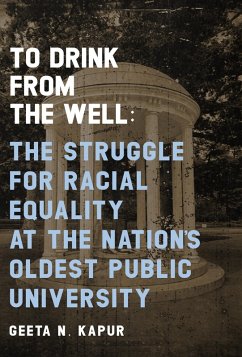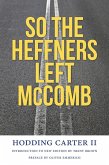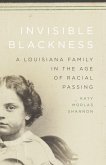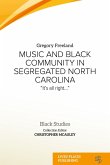Law professor and civil rights activist Geeta N. Kapur provides analysis and commentary on the story of systemic racism in leadership, scholarship, and organizational foundations at the University of North Carolina.
The University of North Carolina is the oldest public university in the US, with the cornerstone for the first dormitory, Old East, laid in 1793. At that ceremony, the enslaved people who would literally build that structure were not acknowledged; they were not even present. In fact, 158 years passed before Black students were admitted to this university in Chapel Hill, and it was another 66 years after that before students forcibly removed the long-criticized Confederate "Silent Sam" monument. Indeed, this university, revered in the state and the nation, has been entwined with white supremacy and institutional racism throughout its history-and the struggle continues today.
To Drink from the Well: The Struggle for Racial Equality at the Nation's Oldest Public University explores the history of UNC by exposing the plain and uncomfortable truth behind the storied brick walkways, "historic" statuary, and picturesque covered well, the icon of the campus.
Law professor and civil rights activist Geeta N. Kapur chronicles the racism within the university and traces its insidious effects on students, faculty, and even the venerable Tarheel sports programs. Kapur tells this story not as a historian, but as a citizen speaking to her fellow citizens. She relies on the historical record to tell her story, and where that record is lacking, she elaborates on that record, augmenting and deconstructing the standard chronology. Kapur explores both the Chapel Hill campus and a parallel movement in nearby Durham, where a growing Black middle class helped to create North Carolina Central University, a historically Black public university.
The University of North Carolina is the oldest public university in the US, with the cornerstone for the first dormitory, Old East, laid in 1793. At that ceremony, the enslaved people who would literally build that structure were not acknowledged; they were not even present. In fact, 158 years passed before Black students were admitted to this university in Chapel Hill, and it was another 66 years after that before students forcibly removed the long-criticized Confederate "Silent Sam" monument. Indeed, this university, revered in the state and the nation, has been entwined with white supremacy and institutional racism throughout its history-and the struggle continues today.
To Drink from the Well: The Struggle for Racial Equality at the Nation's Oldest Public University explores the history of UNC by exposing the plain and uncomfortable truth behind the storied brick walkways, "historic" statuary, and picturesque covered well, the icon of the campus.
Law professor and civil rights activist Geeta N. Kapur chronicles the racism within the university and traces its insidious effects on students, faculty, and even the venerable Tarheel sports programs. Kapur tells this story not as a historian, but as a citizen speaking to her fellow citizens. She relies on the historical record to tell her story, and where that record is lacking, she elaborates on that record, augmenting and deconstructing the standard chronology. Kapur explores both the Chapel Hill campus and a parallel movement in nearby Durham, where a growing Black middle class helped to create North Carolina Central University, a historically Black public university.
Dieser Download kann aus rechtlichen Gründen nur mit Rechnungsadresse in A, D ausgeliefert werden.









